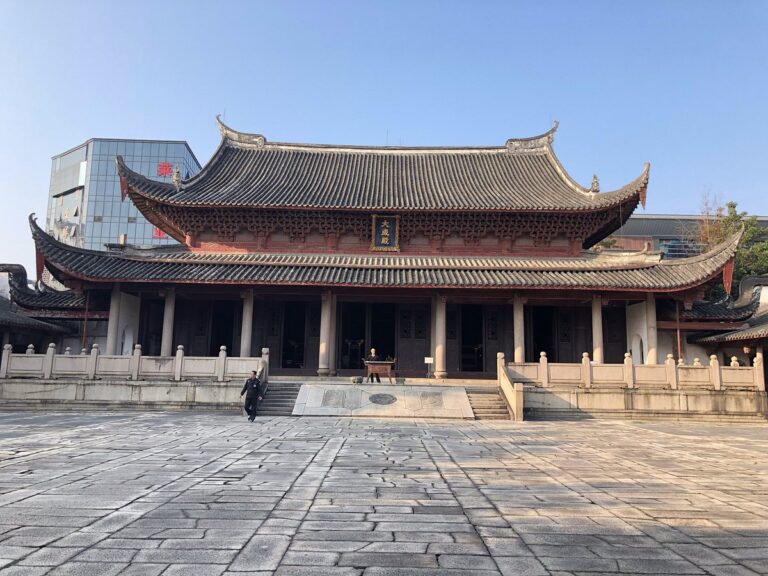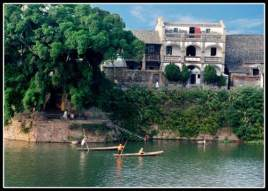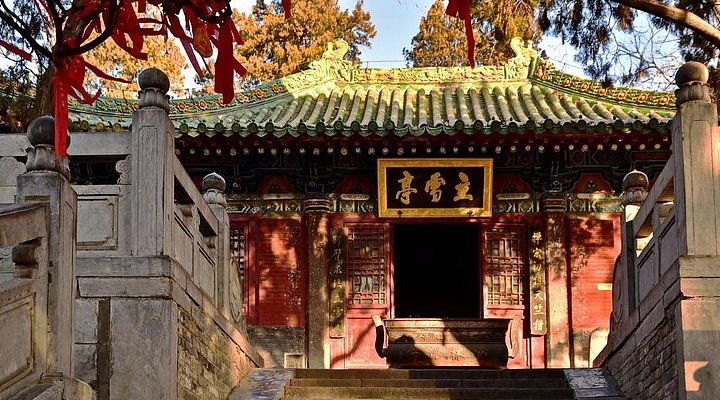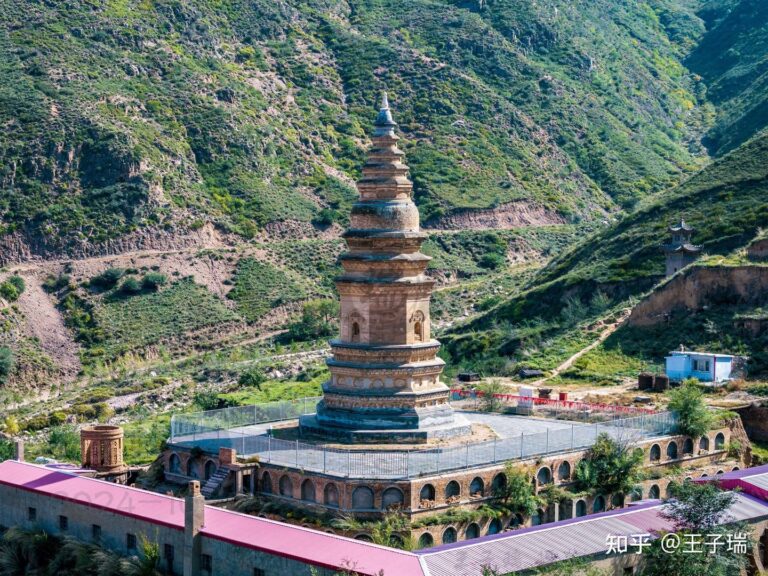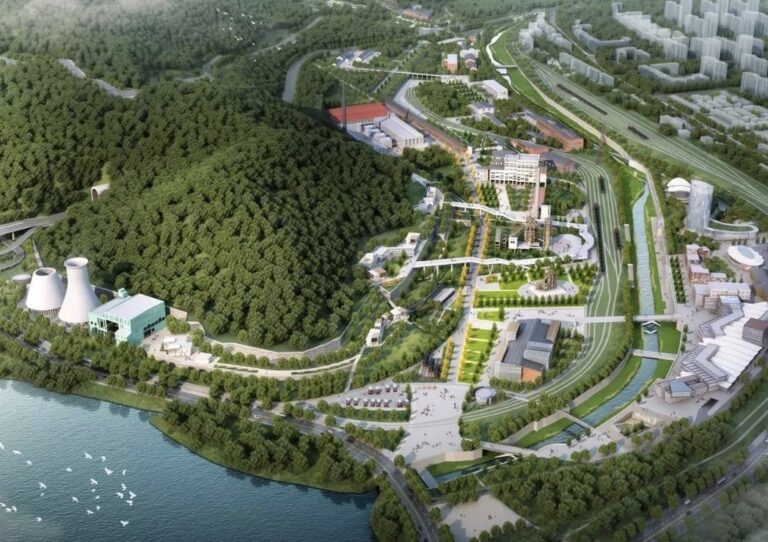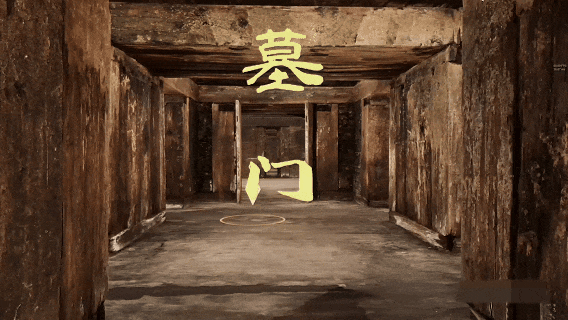Discover the Allure of Beijing Dongcheng Wentianxiang Ci: A Cultural Retreat
An Essential Guide to Visiting Beijing Dongcheng Wentianxiang Ci
In This Guide
- An Essential Guide to Visiting Beijing Dongcheng Wentianxiang Ci
- The Rich History of Beijing Dongcheng Wentianxiang Ci
- Main Highlights: What to See at Beijing Dongcheng Wentianxiang Ci
- Planning Your Visit: A Practical Guide
- Tickets, Hours, and Booking
- How to Get There
- Local Cuisine and Accommodation
- Frequently Asked Questions
- Final Thoughts on Your Trip
Nestled in the heart of Beijing’s Dongcheng District, the Wen Tianxiang Memorial Hall (文天祥祠) stands as a poignant tribute to an enduring symbol of patriotism and integrity. This historical site, also known as the Prime Minister Wen Hall, marks the spot where the revered Southern Song dynasty hero, Wen Tianxiang, was imprisoned and ultimately executed in the 13th century. Built in 1376 during the Ming dynasty, the hall has retained its architectural elegance and cultural significance over the centuries, serving as a testament to Wen’s unyielding spirit in the face of adversity.
Visitors to the memorial are greeted by a serene courtyard, where a gnarled jujube tree—legend has it that Wen himself planted this tree during his incarceration—leans defiantly towards the south, symbolizing his steadfast loyalty to his country. The layout of the hall, comprising a grand entrance, a passageway, and a main hall, invites guests to explore the life and legacy of a man who famously proclaimed, “Since ancient times, who has not faced death? Let me retain my loyal heart to illuminate history.” This phrase, immortalized in his famous poem, continues to resonate with visitors, inspiring them to reflect on the values of courage and honor.
Whether you’re a history enthusiast, a lover of architecture, or just seeking a moment of introspection amidst the hustle and bustle of modern Beijing, the Wen Tianxiang Memorial Hall offers a unique glimpse into the past. Here, the spirit of Wen Tianxiang lives on, calling forth a deeper appreciation for the sacrifices made in the name of liberty and the undying quest for justice.
The Rich History of Beijing Dongcheng Wentianxiang Ci
Nestled in the heart of Beijing, the Wen Tianxiang Ancestral Hall, also known as the Wen Prime Minister Hall, serves as a poignant tribute to one of China’s most revered national heroes, Wen Tianxiang. The hall is situated at 63 Fuxue Hutong in Dongcheng District and stands on the site where Wen was imprisoned before his execution during the Southern Song Dynasty.
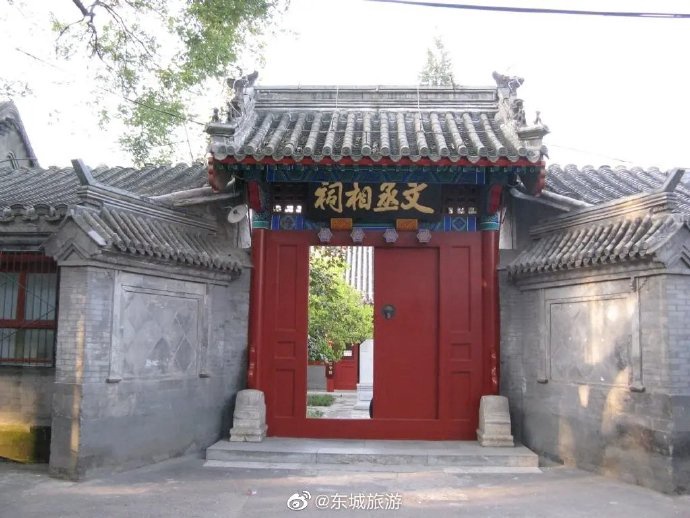
Beijing Dongcheng Wentianxiang Ci.
Wen Tianxiang, born in 1236, rose to prominence as a loyal minister and a fierce defender of his country during the Mongol invasions led by Kublai Khan. His dedication to the Song Dynasty is encapsulated in his unwavering resistance against the Mongol forces, which ultimately led to his capture in 1278. After being held for four years in a dungeon in what is now Beijing, Wen remained steadfast in his beliefs and refused to submit to the invaders, famously penning the immortal “Song of Righteousness” (正气歌) during his imprisonment—a poetic declaration of his patriotism and moral integrity.
The Ancestral Hall was established in 1376, during the Ming Dynasty, under the reign of Hongwu. It was built to honor Wen Tianxiang and to commemorate his unyielding spirit and sacrifice for his nation. The structure comprises three main sections: the entrance, the anteroom, and the main hall, all constructed in a style that preserves the architectural aesthetics of the Ming Dynasty. The hall not only serves as a memorial but also as a museum, showcasing artifacts and exhibits detailing Wen’s life and contributions.
Inside the hall, visitors can find a statue of Wen Tianxiang dressed in ceremonial attire, symbolizing his role as a prime minister. The walls are adorned with inscriptions of his famous works, including the “Song of Righteousness,” which speaks to the moral virtues that he upheld throughout his life. A notable feature in the courtyard is a jujube tree, believed to have been planted by Wen himself during his time in captivity. The tree’s unique southward tilt is often interpreted as a representation of his loyal heart, forever pointing towards the south, symbolizing his commitment to his ideals.
Over the centuries, the hall has undergone various renovations, particularly during the Ming and Qing Dynasties, to preserve its significance and structural integrity. The hall opened to the public in October 1984 and has since become a vital cultural site, attracting both domestic and international visitors who come to pay their respects and reflect on the enduring legacy of patriotism that Wen Tianxiang embodies.
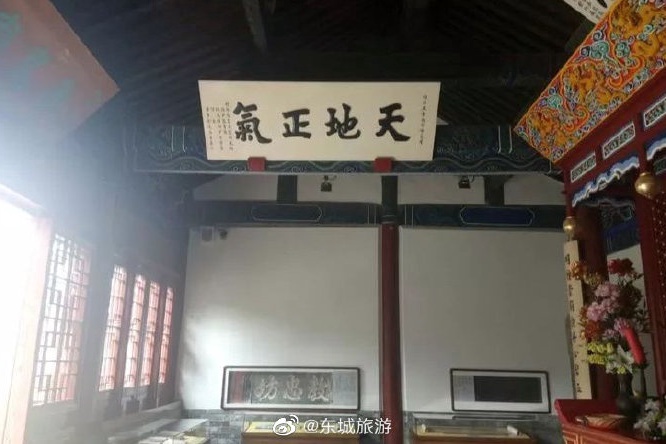
Beijing Dongcheng Wentianxiang Ci.
Today, the Wen Tianxiang Ancestral Hall stands not only as a monument to a historical figure but also as a beacon of national pride, inspiring generations to uphold the values of loyalty and righteousness. Visitors leave with a deeper understanding of the sacrifices made for the nation and the indomitable spirit that continues to resonate in the hearts of the Chinese people.
Main Highlights: What to See at Beijing Dongcheng Wentianxiang Ci
Nestled in the heart of Beijing’s Dongcheng District, the Wen Tianxiang Memorial Hall (文天祥祠) stands as a poignant tribute to one of China’s most revered national heroes. This memorial, also known as the Prime Minister Wen Memorial, commemorates Wen Tianxiang, a valiant figure from the Southern Song Dynasty who is celebrated for his unwavering spirit and dedication to his country during times of turmoil.
Architectural Elegance
The memorial hall, built in 1376 during the Ming Dynasty, retains its historical architectural style, showcasing a beautifully preserved complex that includes a grand entrance, a hall of offerings, and a main shrine. As visitors step through the ornate entrance, they are greeted by a statue of Wen Tianxiang, dressed in traditional Song Dynasty attire, symbolizing his dignified presence and enduring legacy.
Rich Historical Exhibits
Inside, the memorial features a comprehensive exhibition dedicated to Wen Tianxiang’s life and heroic deeds. Through a series of displays, visitors can explore his early years, his rise to prominence as a prime minister, and his steadfast resistance against the Mongol invasions. Notably, the exhibits include artifacts such as stone tablets with inscriptions of his famous “Song of Righteousness” (正气歌), which captures his indomitable spirit and commitment to justice. The exhibition effectively narrates the tale of a man who chose honor over submission, making it a profound experience for history enthusiasts.
The Symbolic Jujube Tree
A unique highlight of the memorial is the ancient jujube tree located in the courtyard, which is said to have been personally planted by Wen Tianxiang during his imprisonment. The tree, with its gnarled branches leaning southward, symbolizes his unwavering loyalty and resolve, reflecting the famous line from his poetry: “My heart is like a compass pointing south, I will not rest until I fulfill my oath.” This living monument adds a deeply personal touch to the memorial, resonating with visitors who seek to understand the emotional depth of Wen’s story.
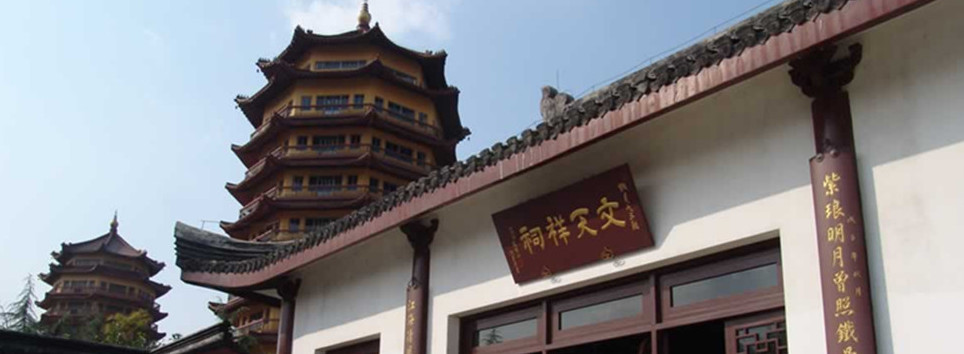
Beijing Dongcheng Wentianxiang Ci.
A Place for Reflection
Visitors to the Wen Tianxiang Memorial Hall often find it a serene spot for reflection on patriotism and sacrifice. The memorial serves not just as a historical site but as a cultural touchstone that inspires a sense of national pride and identity. The inscription by Chairman Mao Zedong, “Life is but a fleeting moment; let one’s loyalty shine brightly through history,” further enhances the memorial’s significance, reminding all who visit of the ideals of integrity and commitment to one’s country.
Visitor Information
The memorial hall is accessible year-round, with an affordable entrance fee of just 5 yuan (2 yuan for students). It is recommended to allocate at least half a day to fully absorb the rich history and cultural significance of this site. Open from 9:30 AM to 5:00 PM, the Wen Tianxiang Memorial Hall welcomes over 200,000 visitors annually, making it a popular destination for both locals and tourists alike.
In summary, the Wen Tianxiang Memorial Hall is a treasure trove of cultural heritage that provides visitors with an opportunity to delve into the life of a national hero whose legacy continues to inspire generations. Whether you are a history aficionado or simply seeking a moment of tranquility in the bustling city, this memorial is not to be missed.
Planning Your Visit: A Practical Guide
Practical Guide to Visiting the Beijing Dongcheng Wentianxiang Ci (文天祥祠)
Location and Access
The Beijing Dongcheng Wentianxiang Ci is located at 63 Fuxue Hutong, Dongcheng District, Beijing. This historic site is easily accessible via public transportation. You can take Bus routes 2, 104, 108, or 113, and get off at the Beibingmasi Station. For those driving, there are parking options available nearby, although public transport is recommended due to limited space.
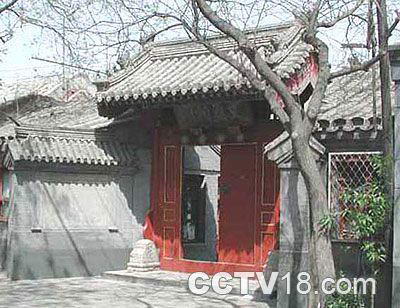
Beijing Dongcheng Wentianxiang Ci.
Opening Hours
The memorial hall is open from Tuesday to Sunday, operating between 9:30 AM and 5:00 PM. Please note that the last entry is at 4:30 PM. The site is closed on Mondays, so plan your visit accordingly.
Admission Fees
Entry to the memorial is quite affordable, with general admission priced at 5 RMB and a discounted rate of 2 RMB for students. This makes it an accessible option for visitors looking to explore Chinese history and culture without breaking the bank.
Recommended Duration of Visit
While some may think a quick visit would suffice, it is advisable to allocate at least 1 to 2 hours to fully appreciate the site. The memorial is not only a historical landmark but also a place for reflection on the life of Wen Tianxiang, a national hero of the Southern Song Dynasty.
Key Features
- Architectural Style: The memorial retains a Ming Dynasty architectural style, consisting of a main gate, a hall, and a courtyard. The layout is traditional, providing visitors with a glimpse into the historical context of the site.
- Exhibits and Artifacts: Inside, you will find a variety of exhibits detailing Wen Tianxiang’s life and heroic deeds. Notable artifacts include his statue, inscriptions of his famous poem “Zhengqi Ge” (正气歌), and valuable stone tablets that document his legacy.
- The Jujube Tree: A significant feature in the courtyard is a jujube tree, believed to have been planted by Wen Tianxiang himself during his imprisonment. Its unique southward tilt symbolizes his unwavering loyalty and determination, reflecting the spirit of his famous line, “My heart is like a compass; it will not rest until it points south.”
Visitor Etiquette
As a site of national significance, it is important to maintain a respectful demeanor during your visit. This includes speaking softly and refraining from inappropriate behaviors, as many come to pay their respects to a revered figure in Chinese history.
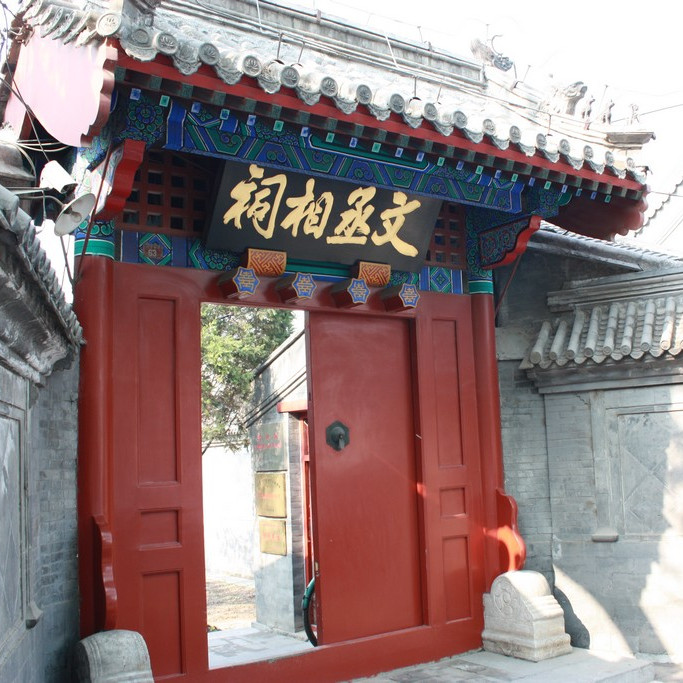
Beijing Dongcheng Wentianxiang Ci.
Nearby Attractions
The area surrounding the memorial is rich in cultural experiences. Consider visiting:
– The Forbidden City: Just a short distance away, this iconic imperial palace offers stunning architecture and historical artifacts.
– Jingshan Park: A beautiful park nearby that provides panoramic views of the city and the Forbidden City.
– Beijing Hutongs: Explore the charming narrow alleys that showcase traditional Beijing life and local street food.
Conclusion
A visit to the Beijing Dongcheng Wentianxiang Ci is not just a journey through history; it is an opportunity to reflect on the values of loyalty, patriotism, and integrity embodied by Wen Tianxiang. With its modest entrance fee and rich cultural significance, it is a must-visit for anyone interested in understanding the depth of Chinese heritage.
Tickets, Hours, and Booking
Visiting the Beijing Dongcheng Wentianxiang Ci, also known as the Wen Tianxiang Memorial Hall, is an enriching experience for those interested in Chinese history and culture. Located at 63 Fuxue Hutong in Dongcheng District, this memorial site pays tribute to one of China’s national heroes, Wen Tianxiang, who valiantly resisted the Mongol invasion during the Southern Song Dynasty.
Ticket Information
- Admission Fee:
- General Ticket: 5 CNY
-
Student Ticket: 2 CNY (valid student ID required)
-
Opening Hours:
- Tuesday to Sunday: 9:30 AM – 5:00 PM
- Last entry is at 4:30 PM
-
Monday: Closed
-
Recommended Visit Duration: Approximately 20-30 minutes is sufficient to explore the memorial and its exhibitions, although many visitors choose to spend longer to fully appreciate the historical significance of the site.
Accessibility
The memorial is accessible by public transport, with several bus routes servicing the area. Visitors can take bus lines 2, 104, 108, or 113, alighting at the Beibingmasi station, from where a short walk will lead you to the memorial.
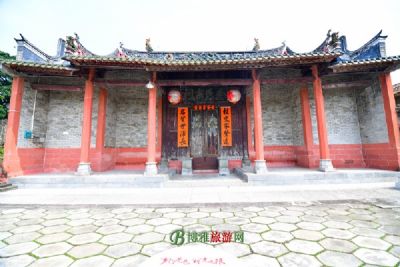
Beijing Dongcheng Wentianxiang Ci.
This modest yet powerful site serves not only as a memorial but also as a museum, showcasing Wen Tianxiang’s life and contributions through various exhibits, including his famous poem, “The Song of Righteousness.” The memorial features a main hall, an exhibition area, and a historically significant jujube tree believed to have been planted by Wen himself during his imprisonment.
For anyone keen on exploring Beijing’s rich historical tapestry, a visit to the Wen Tianxiang Memorial Hall is highly recommended, offering a poignant glimpse into the spirit of patriotism and resilience that Wen Tianxiang embodies.
How to Get There
Reaching the Beijing Dongcheng Wentianxiang Ci (文天祥祠) is quite convenient, thanks to the efficient public transportation network in Beijing. Here’s how you can get there:
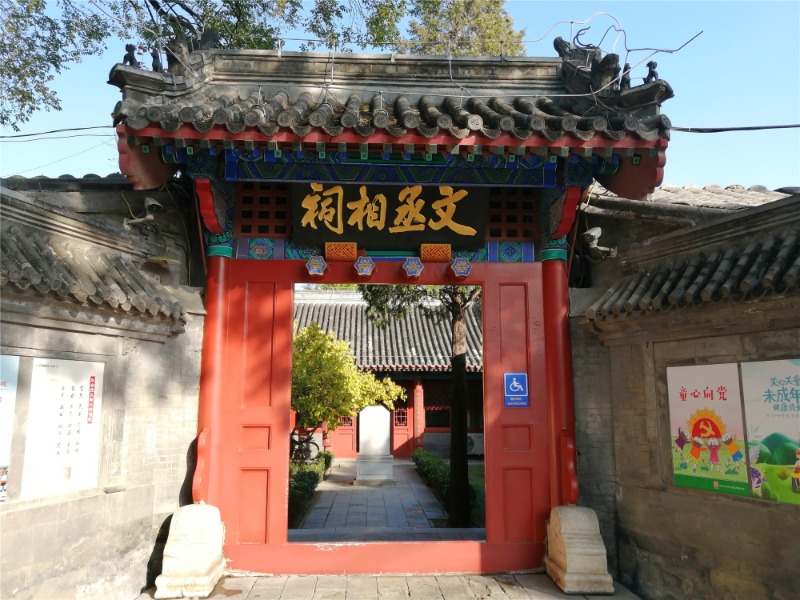
Beijing Dongcheng Wentianxiang Ci.
By Public Transport
- Subway:
-
The nearest subway station is Dongsi Station (东四站) on Line 5. From there, it’s about a 15-minute walk to the memorial. Exit the station and head west along Dongsi South Street until you reach the intersection with Fuxue Hutong, then turn left.
-
Buses:
-
Several bus routes can take you close to the memorial. You can take bus lines 104, 108, or 113. Get off at the Beibinhe Station (北兵马司站), then walk east for about 10 minutes to reach the site.
-
Taxi or Ride-Hailing Services:
- If you prefer a more direct route, taxis and ride-hailing services like Didi are widely available. Simply provide the address: 63 Fuxue Hutong, Dongcheng District, Beijing. The ride from central Beijing should take around 20-30 minutes, depending on traffic.
By Car
If you are driving, there are parking options nearby, but be mindful of the traffic regulations and parking restrictions in the city. Using a navigation app can help you find the best route and parking facilities.
Tips for Visitors
-
Plan Your Visit: The memorial is open from 9:30 AM to 5:00 PM, and last entry is at 4:30 PM. It’s advisable to allocate about 20-30 minutes for your visit to fully appreciate the exhibitions and the site’s historical significance.
-
Consider Off-Peak Hours: To avoid crowds, consider visiting during weekdays or early in the morning.
-
Local Amenities: There are several restaurants and cafes in the vicinity where you can grab a bite before or after your visit.
With these options, visiting the Beijing Dongcheng Wentianxiang Ci should be a seamless part of your exploration of this historically rich city.
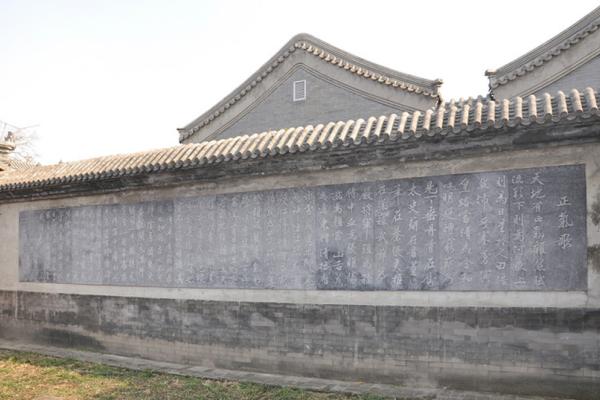
Beijing Dongcheng Wentianxiang Ci.
Local Cuisine and Accommodation
When visiting the Beijing Dongcheng Wentianxiang Ci, also known as the Wen Tianxiang Memorial Hall, you’ll want to indulge in the local culinary delights and find a comfortable place to stay nearby. Here’s a guide to enhance your experience in this historic area.
Culinary Delights
1. Quanjude Roast Duck (全聚德)
A short distance from the memorial hall, Quanjude is famous for its Peking duck, a must-try dish when in Beijing. The restaurant offers a traditional dining experience with expertly roasted duck served with thin pancakes, sweet bean sauce, and sliced vegetables. Reservations are recommended, especially during peak dining hours.
2. TRB Hutong
For a more upscale dining experience, head to TRB Hutong, which combines exquisite French cuisine with a historic setting. Nestled within a beautifully restored hutong, this restaurant is perfect for a romantic dinner or a special occasion. The tasting menu is highly praised and offers a creative twist on classic dishes.
3. Wangfujing Snack Street
If you’re looking for a casual bite, the Wangfujing Snack Street is a vibrant destination for street food lovers. Here, you can find an array of local snacks, from skewered lamb and dumplings to sweet treats like candied hawthorn berries. It’s an excellent place to immerse yourself in Beijing’s bustling food scene.
4. Da Dong Roast Duck (大董)
Another renowned spot for Peking duck, Da Dong is celebrated for its innovative approach to the classic dish, including variations that incorporate seasonal ingredients. The restaurant’s modern ambiance and artistic presentation make it a popular choice for both locals and tourists.
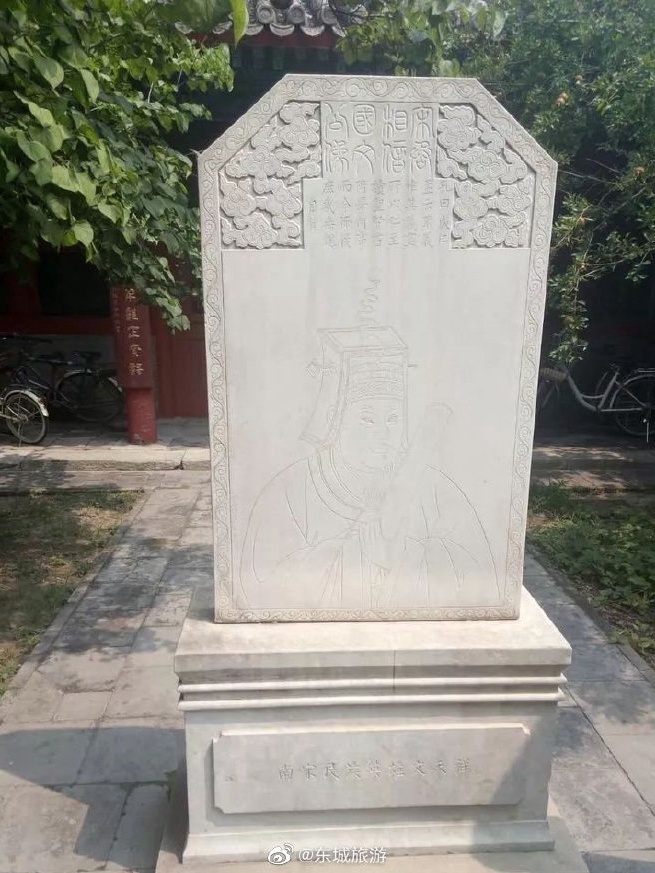
Beijing Dongcheng Wentianxiang Ci.
Places to Stay
1. Beijing Hotel NUO (北京饭店诺金)
Located conveniently near the Dongcheng district, this luxurious hotel offers elegant rooms with modern amenities. Guests can enjoy various dining options, a spa, and easy access to major attractions, making it a perfect base for exploring Beijing.
2. The Opposite House (对面之家)
Situated in the vibrant Sanlitun area, The Opposite House features contemporary design and spacious rooms. The hotel includes a chic restaurant and bar, and is within walking distance to numerous shops and nightlife options, providing a lively atmosphere.
3. Hotel Cote Cour Beijing (故宫旁的庭院酒店)
For a more traditional experience, consider staying at Hotel Cote Cour, which offers a blend of modern comfort and historical charm. Located in a restored courtyard house, this boutique hotel provides a unique and serene environment, with easy access to the city’s cultural landmarks.
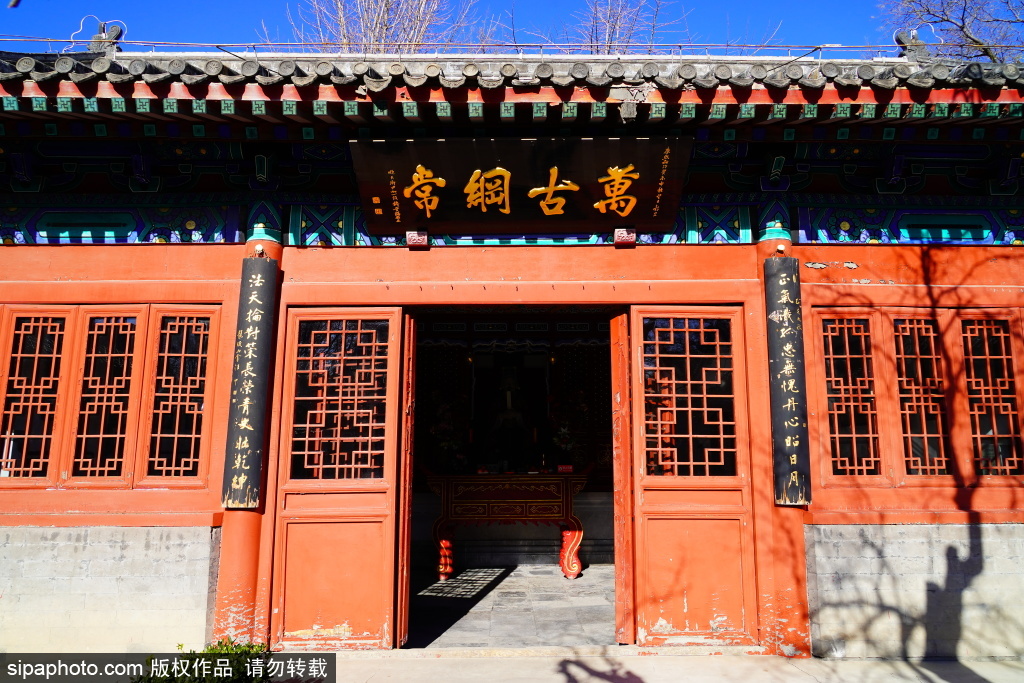
Beijing Dongcheng Wentianxiang Ci.
4. Beijing 161 Wangfujing Hotel (北京161万福酒店)
This mid-range hotel is a great choice for budget-conscious travelers. It is conveniently located near shopping areas and major attractions, with comfortable rooms and a friendly staff ready to assist with local tips and recommendations.
Whether you choose to savor the local cuisine or unwind in one of the nearby hotels, your visit to the Wen Tianxiang Memorial Hall promises to be both enriching and enjoyable.
Frequently Asked Questions
-
What is the historical significance of the Beijing Dongcheng Wentianxiang Ci?
The Beijing Dongcheng Wentianxiang Ci, also known as the Wen Tianxiang Ancestral Hall, is dedicated to the memory of Wen Tianxiang, a national hero from the Southern Song Dynasty. It marks the location where he was imprisoned and executed by the Yuan dynasty. Established in 1376, the hall preserves the history and spirit of Wen Tianxiang’s resistance against foreign invaders, exemplifying loyalty and patriotism. -
What are the main features of the memorial hall?
The memorial hall comprises three main sections: the entrance gate, the exhibition hall, and the main hall. Visitors can find a statue of Wen Tianxiang, a collection of historical exhibits detailing his life and achievements, and various inscriptions, including his famous poem “Zhengqi Ge” (Song of Righteousness). -
Where is the memorial hall located?
The memorial hall is situated at 63 Fuxue Hutong, Dongcheng District, Beijing. It is easily accessible by public transport and is a part of the city’s cultural heritage. -
What is the best time to visit the memorial hall?
The memorial hall is open year-round, making it a suitable visit at any time. However, visiting during weekdays may provide a quieter experience compared to weekends. -
How much is the entrance fee?
The entrance fee for the Beijing Dongcheng Wentianxiang Ci is quite affordable, priced at 5 yuan for adults and 2 yuan for students. This makes it accessible for visitors looking to explore this historical site. -
How long should I plan to spend at the memorial hall?
A visit to the memorial hall typically takes about 20 to 30 minutes. This allows enough time to appreciate the exhibits and reflect on Wen Tianxiang’s legacy. -
Are there any notable artifacts on display?
Yes, the hall features several significant artifacts, including stone tablets with inscriptions detailing Wen Tianxiang’s life, and a rare jujube tree said to have been planted by him during his imprisonment, symbolizing his unwavering spirit. -
What other attractions are nearby?
The memorial hall is located close to other cultural sites in Beijing, such as the Forbidden City and Jingshan Park. Visitors can easily plan a day of exploring multiple historical attractions in the area.
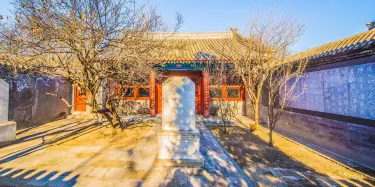
Beijing Dongcheng Wentianxiang Ci.
Final Thoughts on Your Trip
As you conclude your visit to the Beijing Dongcheng Wentianxiang Ci, take a moment to reflect on the profound legacy of Wen Tianxiang, a paragon of loyalty and integrity. This humble yet powerful memorial serves as a poignant reminder of the indomitable spirit of those who stand firm in the face of adversity. The lessons of patriotism and selflessness embodied by Wen continue to resonate through the ages, inspiring countless visitors from around the world.
Whether it’s the evocative inscriptions of his “Song of Righteousness” or the iconic jujube tree he allegedly planted, every corner of this shrine tells a story of resilience and moral fortitude. As you walk through the corridors of history within this monument, allow yourself to be moved by the sacrifices made for the greater good.
In a world often clouded by division and conflict, Wen’s unwavering commitment to his beliefs encourages us to uphold our values and honor our roots. Let the spirit of Wentianxiang inspire you to cultivate a legacy of courage and integrity in your own life. No matter where your journey leads next, carry this message of principled leadership and steadfastness with you, illuminating the path for others as you go.
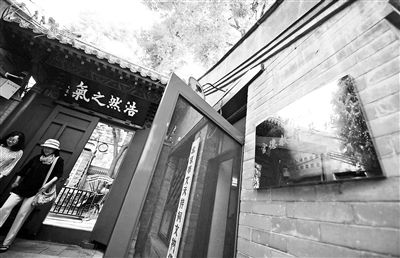
Beijing Dongcheng Wentianxiang Ci.
